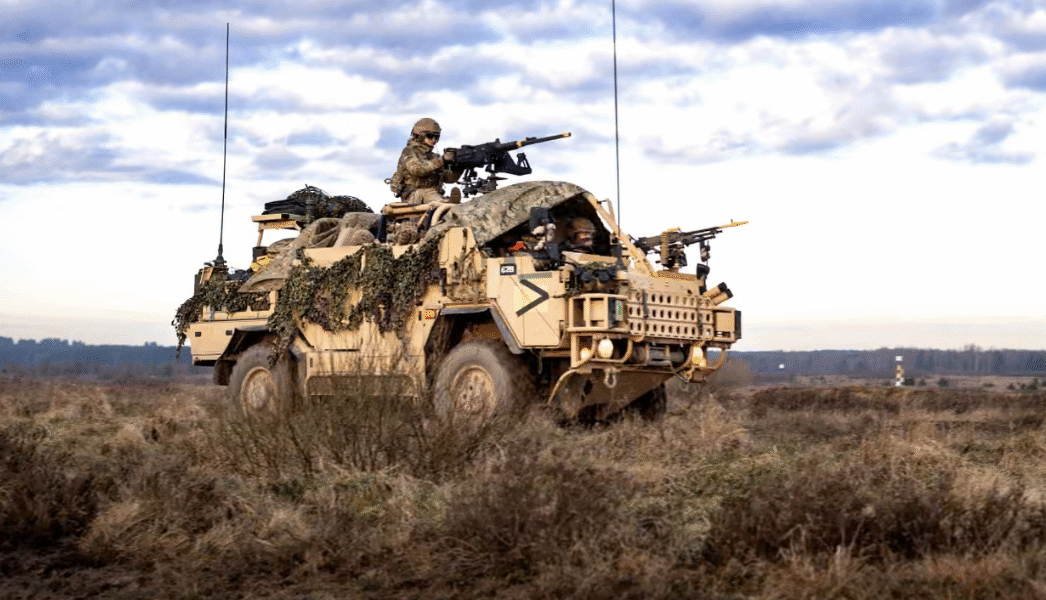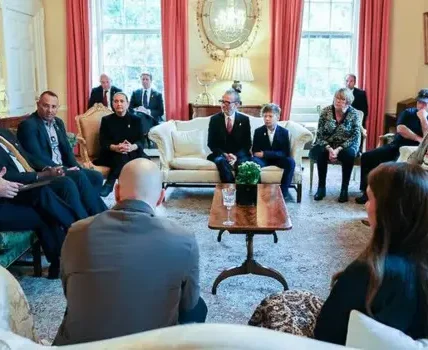
By Sean Rayment
Britain faces a “new era of threat”, including dangers posed by novel weapons of mass destruction, and must rebuild its military to prepare for war, a major defence review has warned.
The UK’s strategic defence review warns that the increasing likelihood of full-scale conflict means Britain “must pivot to a new way of war”.
With defence spending rising significantly, the army’s size will also increase by almost five per cent to 76,000 soldiers, the navy will receive 12 new hunter-killer submarines, six new armament factories will be built, and a missile defence shield constructed.

Artificial intelligence and drones are also part of the plans to keep the UK safe.
The military have been told that “an immediate priority” should be a “shift towards greater use of autonomy and artificial intelligence”, while the army should be prepared to operate with a “20-40-40” mix of crewed systems, “reusable” tech such as drones, and “consumables” such as rockets, shells and missiles.
Prime Minister Keir Starmer said that the country would “accelerate innovation at a wartime pace” amid growing threats from Russia, Iran and China, moving the military into “war-fighting readiness”.

Defence review at a glance:
• Increase defence spending to 2.5 per cent of GDP by 2027 but given “turbulent times it may be necessary to go faster”
• Prioritise a shift towards working with AI and autonomous systems
• Invest in the resilience of military space systems
• Number of active reserves should be increased by 20%
• More F-35 fighter jets required in the next decade
• New “hybrid Navy” with AUKUS submarines and autonomous vessels
The review also emphasised the UK’s key alliances with Gulf states, with Britain to maintain a sizeable force and strong relations in the region.
Defence Secretary John Healey pledged to “create a British Army that is 10 times more lethal” through software and long-range weapons, and committed to delivering “the best kit and technology into the hands of our front-line forces”.
Britain, Europe and Nato are now threatened by “states with advanced military forces” in a much more volatile world that is “changing at remarkable pace”, the report read.
The UK is already under daily cyber attack – most likely from Iran, Russia and China – with Moscow in particular “an immediate and pressing threat” with a war economy that will allow it to rapidly rebuild its military in the event of a ceasefire in Ukraine.
China offers a “sophisticated and persistent challenge”, while Iran is escalating its nuclear programme and sponsoring its proxies such as Hamas, Hezbollah and the Houthis.
Climate change is also expected to lead to conflict over resources, while rising temperatures could mean that the Arctic is ice-free each summer from 2040, providing a new arena for warfare.
Britain, the report read, must prepare for the potential effects of state-on-state war, including air and missile attacks on its critical infrastructure.
Reflecting those dangers, a series of new programmes have been announced to prepare the armed forces “for a much more difficult world”. This is the first defence review in five decades that has not announced equipment or troop reductions.

Internal reforms will be made to turn the army, navy and air force into a unified force that operates in air, land and sea. “The essential task is to transform the armed forces, restore their readiness to fight and reverse the ‘hollowing out’ of foundational capabilities without which they cannot endure in a protracted high-intensity conflict,” the review read.
The armed forces must “move further and faster to increase lethality”, while also increasing their numbers of personnel and equipment.
Nuclear deterrence is at the heart of the blueprint, with 12 new hunter-killer submarines on the books and £15 billion ($20.2 billion) allocated to a new sovereign nuclear warhead programme.
Six new ammunition factories will be built to produce hundreds of thousands of bullets and shells, as well as 7,000 new long-range weapons.
The UK will also spend £1 billion on an air and missile defence system, with Mr Starmer voicing hope that there will be a defence dividend that will create thousands of jobs in the sector.
Britain’s two aircraft carriers, each of which cost £3 billion, are now more vulnerable in a world of precision weapons, and will be turned into hybrid warships carrying drones, long-range weapons and their regular complement of F-35B jets.
Britain’s Cold War-era force of 311,000 personnel has shrunk to about 136,000, while defence spending as a proportion of GDP has been almost halved to 2.3 per cent.
It now appears that it is no longer viable to have such a small military operating in three different services, with the concept of an “integrated force” reminiscent of the US Marine Corps having instead been put forward.
This must be “more lethal than the sum of its parts”, while being skilled in the evolving forms of warfare, the report read.
“This force must be as ready to fight a battle for terrain as it is to fight a battle of will at long range without boots on the ground,” it said.
Britain’s renowned special forces were used as an example for the single-force concept, and were also described as a “tip of the spear” that must be maintained “at the very highest level”.
The review emphasised the need for decisions to be made “much faster”, with digital channels used to create a “shared understanding” of objectives.
British forces would also need to have a blend of highly sophisticated weapons, kamikaze drones and a large supply of artillery rounds.
The army, still recovering from its experiences in Iraq and Afghanistan, must be bold and deliver a “tenfold increase in lethality” by harnessing precision firepower and advanced technology.
“Defence must move further and faster to increase lethality,” wrote the report’s three authors – retired general Sir Richard Barrons, former Nato secretary general George Robertson and foreign policy adviser Dr Fiona Hill.
The home defence is also helped by Britain’s broad international alliances including the US, Europe and Pacific countries.
The Middle East was named as a region where Britain has “some of the deepest and broadest and oldest relationships”.
“The Gulf provides essential access and basing enabling the UK to support international security and freedom of navigation,” the report read.
The Gulf Cooperation Council was described as a “natural partner”, with Britain able to offer “world-class military education” and access to key equipment programmes.
The report highlighted Britain’s long-standing partnership with Saudi Arabia, as well as continuing efforts “to develop its relationship” with the UAE military.
“The UK should build on its relationships in the Middle East, bolstering security,” the report read.




































































































































































































































































































